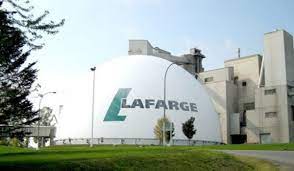Lafarge, a French cement company, admitted guilt on Tuesday for paying the Islamic State group millions of dollars to keep a plant running in Syria at a time when the terrorist group was torturing captured Westerners and agreed to pay about $778 million in fines.
The corporation was accused of turning a blind eye to the behavior of the Islamic State as the militant group seized fresh territory and while Syria was embroiled in a devastating civil war, according to the Justice Department, which described it as the first case of its kind. Before combining with Swiss company Holcim to become the largest cement manufacturer in the world, the company’s actions were already under investigation by French authorities.
It was the first time a firm had admitted to plotting to give material assistance to a foreign terrorist organization, according to Justice Department authorities. Lafarge and a long-gone Syrian subsidiary entered the plea, consenting to $687 million in forfeiture as well as criminal fines of $90.78 million.
“There is absolutely no basis for a multinational firm to approve donations to a terrorist organization. According to Assistant Attorney General Matthew Olsen, the Justice Department’s senior national security official, such payments are flagrant violations of our laws that call for close inspection by American authorities and harsh punishment.
In 2013 and 2014, according to the prosecution, the business sent about $6 million to IS and the al-Nusrah Front, another violent organization. The Justice Department said that the payments were made for purely economic gain rather than because of any ideological alignment.
In 2011, the company invested $680 million in the construction of a cement plant in northern Syria. Facing competition from cheaper imported cement, the company saw the payments to IS as a way to guarantee the plant’s continued operations, protect its workers, and facilitate the delivery of raw materials to the facility. The corporation was charged by the Justice Department for using fictitious contracts and false invoices to conceal the partnerships.
The payments were made at a time when other businesses were ceasing their activities in the area and beheading films distributed as publicity by IS made the world aware of the Islamic State’s heinous deeds.
For instance, charging documents cite an email exchange from August 20, 2014, in which company representatives discuss their discussions with IS. One of them mentions the need to speak with a corporate counsel about “the ramifications of this kind of arrangement.” IS had previously published a graphic film depicting the assassination of American journalist James Foley the previous day.
Make no mistake, deputy attorney general Lisa Monaco said: “Lafarge and its leadership had every reason to know precisely with whom they were dealing—and they didn’t flinch.” “Instead, Lafarge persisted, cooperating with ISIS to maintain operations, outbid rivals, and increase revenue. Lafarge continued to fund and support a vicious terrorist group, allowing it to carry out its operations.
The allegations relate to behavior that French authorities previously looked into. Lafarge previously admitted to providing funding to Syrian armed groups in 2013 and 2014 to ensure staff safety and supply its factory.
The business received preliminary charges in 2014 for participation in crimes against humanity and supporting a terrorist organization.
Later, a French court dismissed the claims of crimes against humanity, but it also stated that other charges regarding funds made to Syrian armed forces would be taken into consideration.
The French Supreme Court later overruled that decision, which prompted a lower French court to rule earlier this year that Lafarge must answer to charges of participation in crimes against humanity.
Lafarge and eight of its executives have not yet been put on trial in France.




















